Elementary Word Problems: Online Workshop for Math Teachers
$169.00
Solving word problems is one of the most important skills students will learn in elementary math. It’s also one of the most challenging.
Register today for Elementary Word Problems, and you’ll take the problem out of word problems for you and your students.
In this workshop, you’ll learn strategies to help your students succeed with the most challenging word problems. Registration includes all the print and digital resources you need to bring these engaging word problem activities back to your classroom.
Each virtual session is conducted in real time with a live facilitator. Participants earn a total of 4 PD Hours.
Full workshop details below. Workshop dates and times are shown to the right, below the dropdown menu.
You’ve taught them all the tricks, from CUBES to keywords, but your students still struggle with elementary word problems. Sound familiar?
You’re sure that they know the math, so it just doesn’t make sense. Could it be a reading issue? A lack of effort?
You’re sure you could figure it out if they’d only show their work!
Why Elementary Students Struggle with Word Problems
There are two reasons why most elementary students have trouble with word problems.
The first is that many students learn math facts and algorithms, but without understanding the concepts. In fact, the reason word problems are so prominent (in textbooks and state tests) is because they’re trying to assess conceptual understanding.
The second reason is that students don’t have a good process for solving elementary word problems. They’re not sure where to begin, how to organize their thoughts, or what to do when they get lost.
Teaching Elementary Word Problems with the Polya Process
The solution to both problems is the Polya Process. This is a 4-step approach to solving word problems that emphasizes conceptual understanding.
Understand, Plan, Solve, and Reflect. The secret to teaching elementary word problems to your students.
In the Understand phase, students identify given information and what’s being asked.
In the Plan phase, students apply proven problem-solving strategies, like draw a picture, or work backwards to solve even the most challenging problems.
To Solve, students complete the strategy they planned. Then, they Reflect on the accuracy of their solution, what they did well, and what to improve.
This approach goes well beyond “boxing the key words.” Your students will learn to make sense of problems, and to apply their understanding to real world situations.
Workshop Overview
The Elementary Word Problems workshop includes 8 hours of hands-on, interactive professional learning. Each session is conducted in real time, with a live facilitator. You’ll solve problems and engage in discussions with fellow educators.
As a participant, you’ll receive copies of all the print and digital classroom resources needed to bring the Polya Process back to your classroom the very next day!
Unit 1: Knowns and Unknowns – Ensure students are making sense of word problems by focusing on what information is being given, and what is being asked.
Unit 2: Modeling Strategies – Learn concrete and representational problem-solving strategies, like Act it Out, and Draw a Picture.
Unit 3: Abstract Strategies – Learn to apply abstract strategies like Work Backward or Write an Equation.
Unit 4: Teaching the Polya Process – Learn lesson models for teaching the Polya Process through collaborative inquiry.
Unit 5: Planning and Assessment – Incorporate problem-solving into your unit plans and yearly pacing guides. Learn to assess student understanding with word problems.
Enrolling in the Elementary Word Problems Workshop
Enrollment is open to all elementary teachers, administrators, instructional coaches, tutors, and homeschool parents.
For more on the Polya Process, read our article, How to Help Students Who Struggle with Word Problems. For more information on any of our workshops contact us at [email protected].
If your school or district is interested in group pricing or custom professional development packages, schedule a free consultation with one of our education consultants.
We accept payment by credit card or purchase order. To register by PO, choose Purchase Order as your payment method at checkout. Please include contact information for your school or district business office.
About the Presenter
 Jeff Lisciandrello is a curriculum specialist and math consultant specializing in student- centered instruction. He has over 15 years experience as a classroom teacher and instructional coach. In Jeff’s workshops, you won’t just hear about differentiation and inquiry-based learning: You’ll experience them first-hand. Find him on Twitter @EdTechJeff
Jeff Lisciandrello is a curriculum specialist and math consultant specializing in student- centered instruction. He has over 15 years experience as a classroom teacher and instructional coach. In Jeff’s workshops, you won’t just hear about differentiation and inquiry-based learning: You’ll experience them first-hand. Find him on Twitter @EdTechJeff
| Date(s) | November 2022, April 2022 |
|---|
19 reviews for Elementary Word Problems: Online Workshop for Math Teachers
Related products
-
Lesson Plans and Classroom Activities
Representing Functions Word Problem Activities (Digital and Print)
$5.00 Add to cart -
Lesson Plans and Classroom Activities
Exploring Standards Activity | Google Slides
$3.00 Add to cart -
Lesson Plans and Classroom Activities
Multiplying Fractions Word Problem Activities – Complete Digital and Print Lesson
$5.00 Add to cart

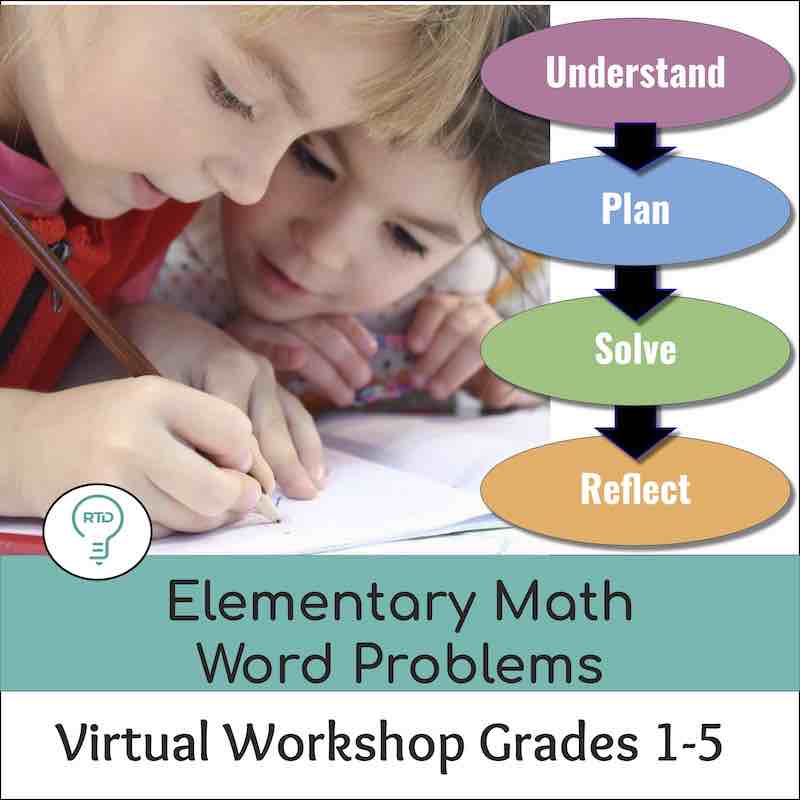
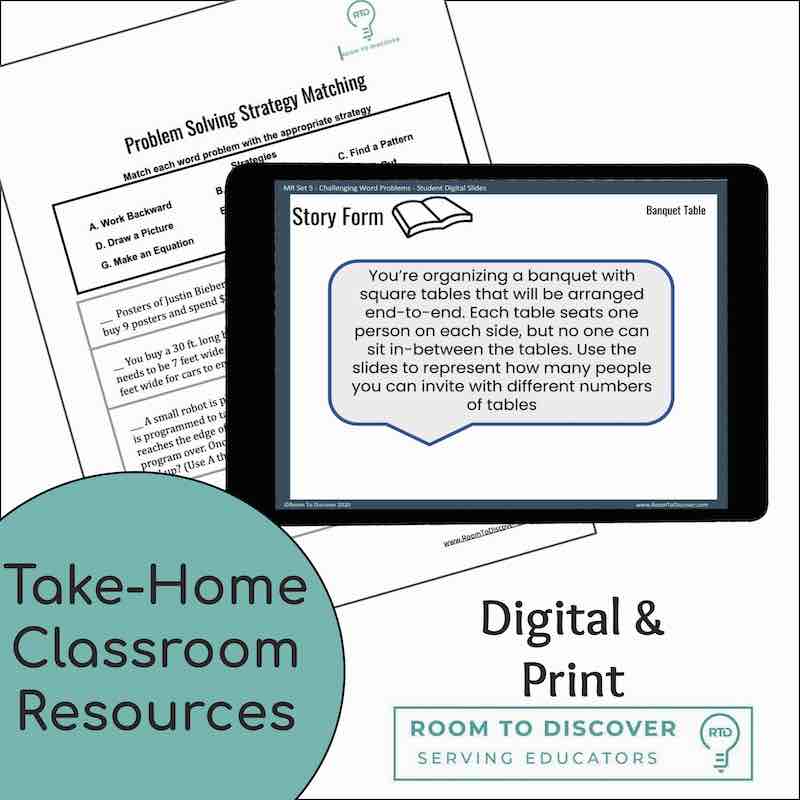
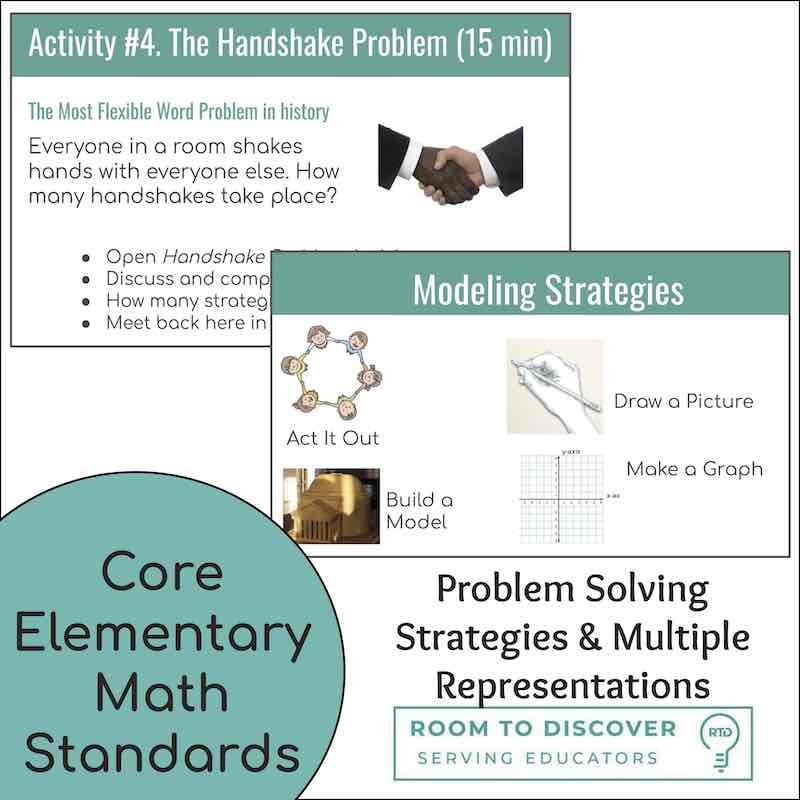
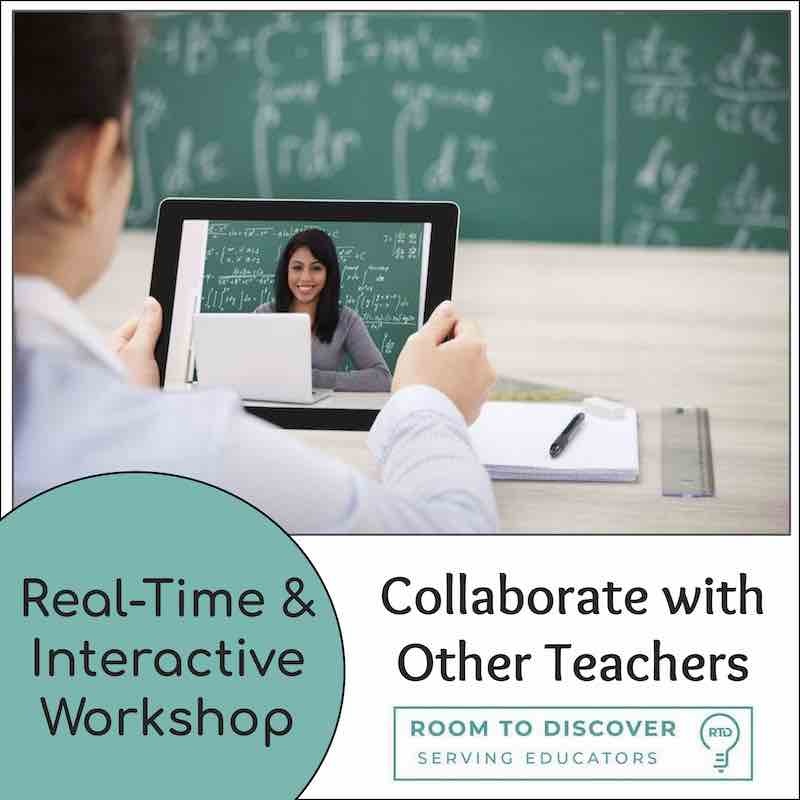
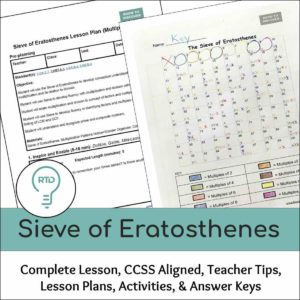
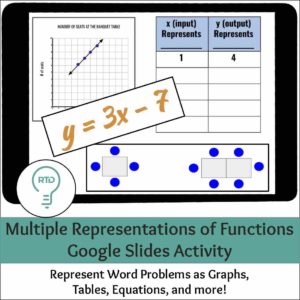
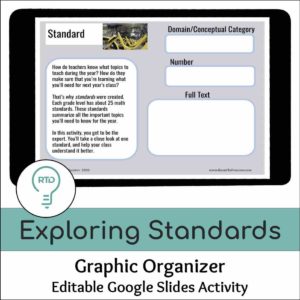
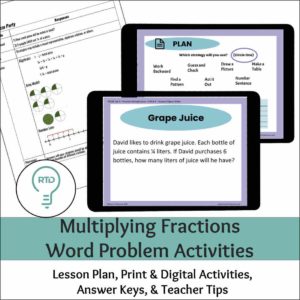
Jennifer –
Jeff gave me relevant word problems for my grade level that was very informative and relevant for my students.
Levard –
Good use of the CRA method.
Lisa –
Great handouts.
Freddy –
Jeff is a great presenter.
Danielle –
I was introduced to practical tools to help implement problem based learning into my classroom. I enjoyed doing the problems and putting myself in a learners’ shoes.
Heather –
I liked being able to share my experiences with other teachers. I had a great time and it was great way work with other teachers on difficult math problems but brainstorm possibilities of different ways to learn/use word problems. The instructors were flexible with different grade levels and being realistic about the issues of word problems.
Jee (Jasmine) –
I liked how there was a lot of time to discuss challenging word problems. The story problem presolver was really helpful and a great resource that is applicable to my classroom. I also thought Jeff did a great job with answering questions and facilitating discussions. Your ideas help teachers and students put more thought and reflection into the learning without requiring an unrealistic amount of planning. I also believe the templates can greatly enhance any math textbook that is being used.
Tom –
I really enjoy Jeff’s passion for teaching as well as his templates that helps give value to both planning and reflecting on a problem. The sessions are thought provoking, and a great place to share ideas with other educators.
John –
The breakout rooms worked well. Note:The session title was “Taking the Problem out of Word Problems” I did not see that as a choice on the first page.
Ashley –
Break out Rooms and ability to solve problems.
Matt –
Discussion elements, sharing, all of them great.
Elvia –
I liked the idea of break out room and having us work on different problems. Having different ways to solve or break down the problem was very helpful for me.
Zach –
The problem solving templates and breakout rooms.
Carol –
I really appreciated the breakout groups for the chance to discuss problems, how to help our students, discussion of pitfalls, etc. The digital materials are awesome; they will come in handy in helping my 3rd graders read for understanding word problems, and using the organizers to help them think through all of the crucial information to solve a word problem. My experience is that it was highly interactive and relevant to our needs for teaching today.
Katie –
This was a very informative and engaging workshop. Jeff modeled the workshop as he was describing teaching word problems – a little background, mostly participants leading the learning, then sharing out what we discussed. I would absolutely attend another workshop.
Shameeka T. –
Facilitation and Presenters Passion Towards the Subject Room to Discover make it possible for all educators to learn.
Katie –
The activities and breakout rooms were the best part, it was great!
Justine Miranda –
The emphasis on interactivity and discussions really helped make the lessons stick. It was very informative and helpful.
Keith Folsom –
Small groups made it easier to talk freely. The challenge of word problems in elementary is a tricky one for anyone I’ve ever talked to about. This gave me some additional tools to use or think about. I’ve already implemented some new ideas. Jeff had great command of the topic.